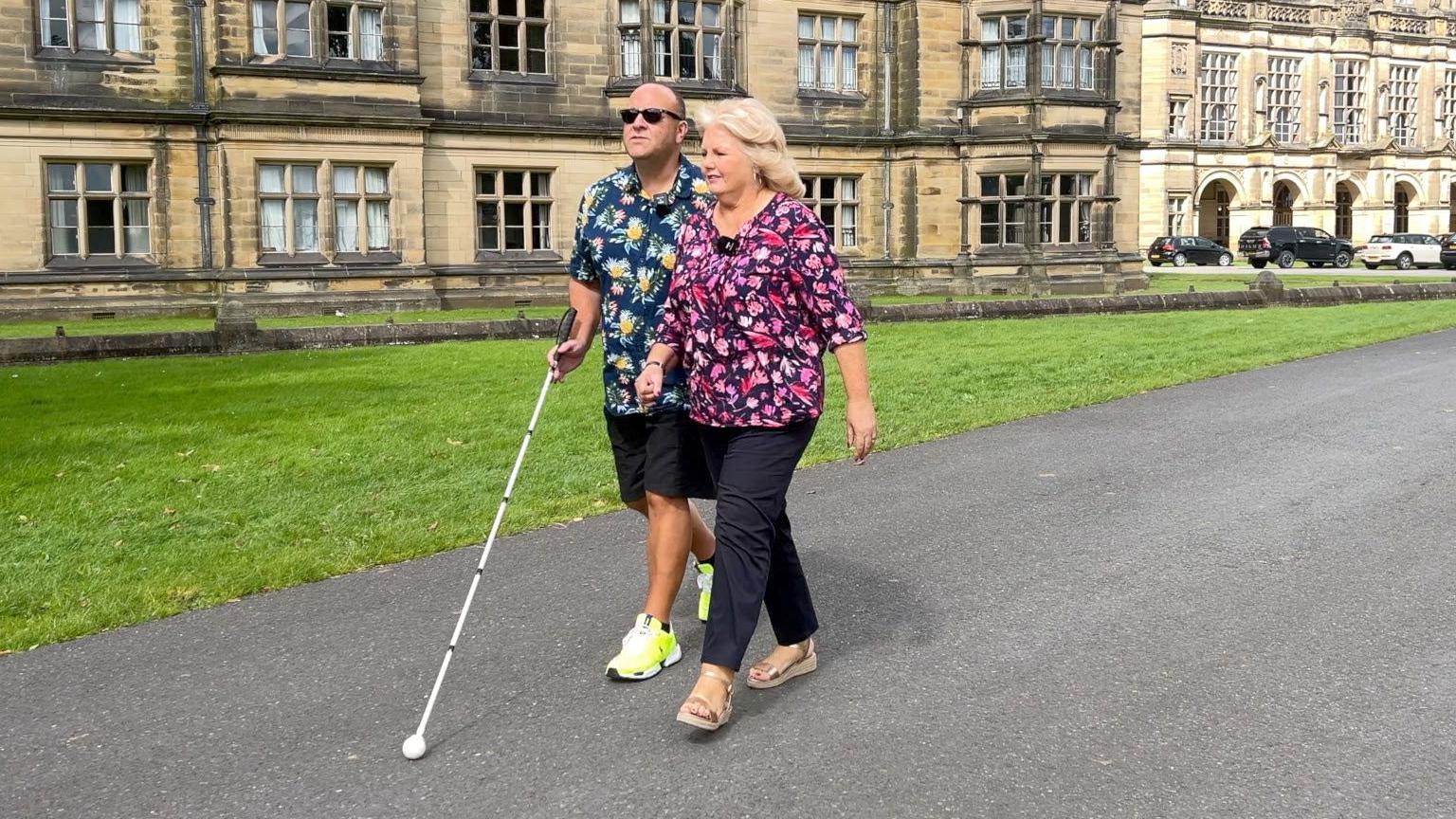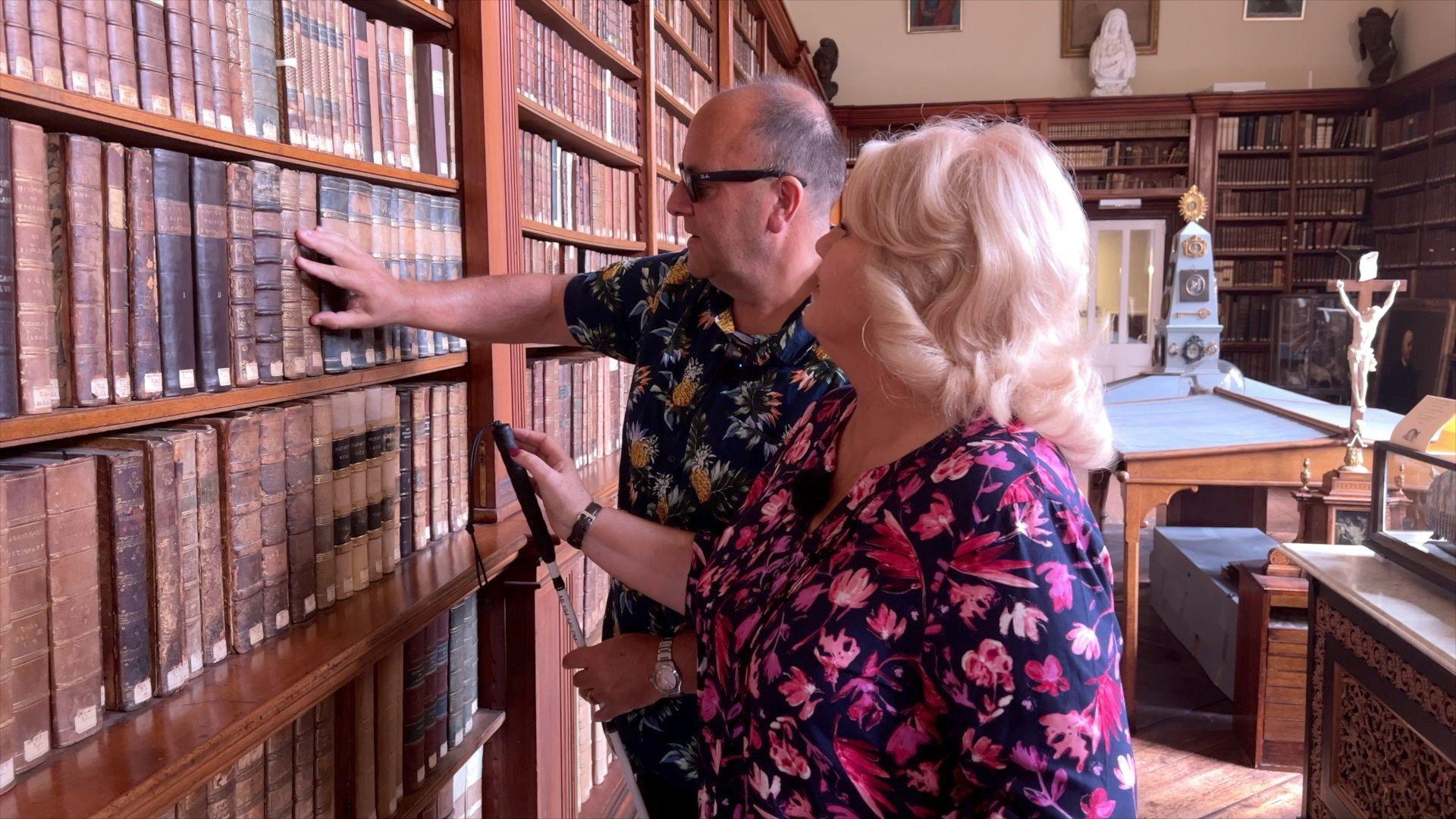Disappointment as Guide Dogs charity axes buddy scheme

Daren Smith was matched with Debbie Ramsey in the My Sighted Guide scheme
- Published
A charity's decision to stop a volunteer-run service to help visually impaired people get out and about has been met with disappointment from its users.
Guide Dogs is stopping running the My Sighted Guide service, which matches volunteers up with users.
Daren Smith, from Oswaldtwistle in Lancashire, said the “fantastic” scheme had made “such a difference” to his life.
Guide Dogs said rising costs and an “increasing gap of service provision” were the reasons for ending the scheme.
Mr Smith, who has a condition called retinitis pigmentosa, which affects the retina and causes sight loss, was matched with volunteer Debbie Ramsey nine months ago.
He said the scheme had “changed his world” by allowing him to try activities including pottery lessons, target shooting and archery.

Debbie Ramsey helps Daren Smith around and also describes items for him
He said he really enjoyed “just having a coffee and a chat and a laugh and you can go back to your house then and you’re happy, you feel on top of the world".
But he added: "Now it’s all going to come crumbling down and even on the logos all the things they give to the volunteers it says like dreams come true, well they’ve just shattered my dreams.
“I think it’s something Guide Dogs should reconsider because it means the world to me."
Mr Smith’s guide Debbie Ramsey said she thought it was “absolutely disgraceful”.
“This is such a valuable service and to take it away from people you are going to destroy people’s lives,” she said.
Peter Osborne, the deputy chief executive of Guide Dogs said it had been a “difficult decision”.
Increasing costs
“What we’ve seen is an increasing gap in service provision, ability to provide the service and those people waiting for the service and increasing costs to sustain the service,” he said.
He added that some people had chosen to continue to work with their volunteers, just not under the Guide Dogs name.
And he said the charity was working to enable more support within local communities.
“We want to make sighted guiding as available to everybody as we possibly can and available to thousands of people and not hundreds,” he said.
But Ms Ramsey said she thinks there are issues with this and urged the charity to reconsider.
She said: “Somebody with sight loss is never going to come into contact with a member of the public who might be in a town centre or a shop, because they’re isolated at home and this service goes to their home, collects them and we go out and about."
Listen to the best of BBC Radio Lancashire on Sounds and follow BBC Lancashire on Facebook, external, X, external and Instagram, external. You can also send story ideas to northwest.newsonline@bbc.co.uk, external